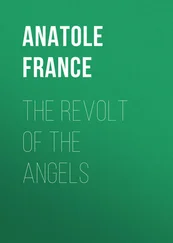Yukio Mishima - The Decay Of The Angel
Здесь есть возможность читать онлайн «Yukio Mishima - The Decay Of The Angel» весь текст электронной книги совершенно бесплатно (целиком полную версию без сокращений). В некоторых случаях можно слушать аудио, скачать через торрент в формате fb2 и присутствует краткое содержание. Год выпуска: 2010, Издательство: CCV Digital, Жанр: Старинная литература, на английском языке. Описание произведения, (предисловие) а так же отзывы посетителей доступны на портале библиотеки ЛибКат.
- Название:The Decay Of The Angel
- Автор:
- Издательство:CCV Digital
- Жанр:
- Год:2010
- ISBN:нет данных
- Рейтинг книги:5 / 5. Голосов: 1
-
Избранное:Добавить в избранное
- Отзывы:
-
Ваша оценка:
- 100
- 1
- 2
- 3
- 4
- 5
The Decay Of The Angel: краткое содержание, описание и аннотация
Предлагаем к чтению аннотацию, описание, краткое содержание или предисловие (зависит от того, что написал сам автор книги «The Decay Of The Angel»). Если вы не нашли необходимую информацию о книге — напишите в комментариях, мы постараемся отыскать её.
The Decay Of The Angel — читать онлайн бесплатно полную книгу (весь текст) целиком
Ниже представлен текст книги, разбитый по страницам. Система сохранения места последней прочитанной страницы, позволяет с удобством читать онлайн бесплатно книгу «The Decay Of The Angel», без необходимости каждый раз заново искать на чём Вы остановились. Поставьте закладку, и сможете в любой момент перейти на страницу, на которой закончили чтение.
Интервал:
Закладка:
The steward talked of this and that, and the moments passed. Honda sat quietly in the breeze. The sweat and the aching had left him. He felt that rescue had come.
He was in a room of the Gesshuuji, which he had thought it would be impossible to visit. The approach of death had made the visit easy, had unloosed the weight that held him in the depths of being. It was even a comfort to think, from the light repose the struggle up the hill had brought him, that Kiyoaki, struggling against illness up that same road, had been given wings to soar with by the denial that awaited him.
The shrilling of cicadas remained in his ears, but here in the dusk it was cool, like the dying echo of a bell. The old man talked on, making no further reference to the letter. Honda could not bring himself to ask whether he would see the Abbess.
He began to fear that the empty passage of the moments was a circumspect way of informing him that the Abbess would not receive him. Perhaps the old steward had seen the article in the weekly magazine. Perhaps he had advised her to plead an indisposition.
Honda did not feel timid about seeing her, guilt-ridden though he was. Without the crime and the guilt and the mortality he would not have had the courage for that climb. He now saw that the scandal had given him his first dark prompting. Tōru’s attempted suicide, his blindness, Honda’s illness, Kinué’s pregnancy, had all pointed to the same spot. It was true: they had frozen into a cluster and forced him up that burning road. Without them he could only have looked up at the radiance of the Gesshuuji upon a distant summit.
If, after so much, the Abbess were to refuse him because of the incident, he could call it fate. He would not see her in this life. He was sure all the same that he would see her one day, even if he was denied a meeting on this last spot in this last hour in this world.
Cool repose replaced fretfulness, resignation sorrow, to make the passage of time bearable.
The old nun appeared again, and whispered something in the steward’s ear.
“Her Reverence has informed us that she is ready to see you,” he said, in the accents of this West Country. “Come with me, if you will, please.”
Honda wanted to believe his ears.
The green light from the northern garden was too strong, and for a moment he did not recognize it; but it was here, sixty years before, that the Abbess’s predecessor had received him.
He remembered the bright review of the seasons on that earlier screen. It had been replaced by a plain screen of wattled reeds. Beyond the veranda burned the green of a small tea garden, alive with cicadas. Beyond a profusion of maples, plums, and tea bushes were the red buds of an oleander. The summer light fell sharply upon the white spears of dwarf bamboo among the steppingstones, repeating the white light from the sky above the wooded hills.
A beating of wings seemed almost to strike the wall. A sparrow flew in from the gallery and on again, its shadow wavering against the white wall.
The door to the inner apartments slid open. Before Honda, who had brought his knees together in stiff formality, the old Abbess appeared, led by a white-clad novice. The pale figure in a white kimono and a cloak of deep purple would be Satoko, now eighty-three.
Honda felt tears come to his eyes. He was powerless to look up at her.
She faced him across the table. The nose was the finely carved nose of those years before, and the eyes were the same beautiful eyes. Satoko had changed utterly, and yet he knew at a glance that it was Satoko. The bloom of youth had in a jump of sixty years become the extreme of age, Satoko had escaped the journey through the gloomy world. A person who crosses a garden bridge from shadow into sunlight may seem to change faces. If the beautiful young face was the face in the shadow, such, no more, was the change to the beautiful old face now in the sunlight. He remembered how, as he left the hotel, Kyoto faces had seemed bright and dark under parasols and how one could predict the quality of beauty from the brightness and darkness.
For Honda it had been sixty years. For Satoko had it been the time it takes to cross a garden bridge from shadow into sunlight?
Age had sped in the direction not of decay but of purification. The skin seemed to glow with a still light; the beauty of the eyes was clearer, shining through something like a patina. Age had crystallized into a perfect jewel. It was cold though diaphanous, roundly soft though hard, and the lips were still moist. There were wrinkles, deep and innumerable, but they were bright as if washed clean one by one. There was something brightly forceful about the tiny, somewhat bent figure.
Hiding his tears, Honda looked up.
“It was good of you to come,” said the Abbess pleasantly.
“It was rude of me to introduce myself without warning, and it is very kind of you to see me all the same.” Wanting above all to avoid familiarity, Honda found himself using the stiffest of greetings. He was ashamed of the phlegm-choked old voice. He forced himself on. “I addressed myself to your steward. I wonder if he was kind enough to show you my letter.”
“Yes, I saw it.”
There was a pause. The novice took advantage of it to withdraw.
“How the memories come back. As you can see, I am so old that I cannot be sure of lasting the night.” He took courage from the fact that she had read his letter. The words came more easily.
The Abbess laughed and seemed to sway gently. “Your interesting letter seemed almost too earnest.” Like the steward, she spoke the West Country dialect. “I thought there must be some holy bond between us.”
The last drops of youth leaped up within Honda. He had returned to that day sixty years before, when he had pleaded youthful ardor to the Abbess’s predecessor. He discarded his reserve.
“Your revered predecessor would not let me see you when I came with Kiyoaki’s last request. It had to be so, but I was angry. Kiyoaki Matsugae was after all my dearest friend.”
“Kiyoaki Matsugae. Who might he have been?”
Honda looked at her in astonishment.
She might be hard of hearing, but she could not have failed to hear him. Yet her words were so wide of the mark that he could only believe he had been misunderstood.
“I beg your pardon?” He wanted her to say it again.
There was no trace of dissimulation as she repeated the words. There was instead a sort of girlish curiosity in her eyes, and below them a quiet smile. “Who might he have been?”
Honda saw that she wanted him to tell her of Kiyoaki. Scrupulously polite, he recounted his memories of Kiyoaki’s love and its sad conclusion.
The Abbess sat motionless through the long story, a smile always on her lips. Occasionally she would nod. She listened with care even as she gracefully took the cold refreshments the old nun had brought in.
Calmly, without a touch of emotion, she said: “It has been a most interesting story, but unfortunately I did not know Mr. Matsugae. I fear you have confused me with someone else.”
“But I believe that your name is Satoko Ayakura?” He coughed in the urgency of his words.
“That was my lay name.”
“Then you must have known Kiyoaki.” He was angry.
It had to be not forgetfulness but unabashed prevarication. He knew that the Abbess had reasons enough to pretend ignorance; but that a woman far from the vulgar world, of her venerable state, should lie thus openly gave grounds for doubting the depth of her convictions. If she still carried with her all the hypocrisy of that other world, then there must be doubts about the validity of her conversion when she entered this one. The dreams of sixty years seemed betrayed in that instant.
His persistence passed a reasonable limit, but she did not seem to resent it. For all the heat, her purple cloak was cool. Her eyes and her always beautiful voice were serene.
Читать дальшеИнтервал:
Закладка:
Похожие книги на «The Decay Of The Angel»
Представляем Вашему вниманию похожие книги на «The Decay Of The Angel» списком для выбора. Мы отобрали схожую по названию и смыслу литературу в надежде предоставить читателям больше вариантов отыскать новые, интересные, ещё непрочитанные произведения.
Обсуждение, отзывы о книге «The Decay Of The Angel» и просто собственные мнения читателей. Оставьте ваши комментарии, напишите, что Вы думаете о произведении, его смысле или главных героях. Укажите что конкретно понравилось, а что нет, и почему Вы так считаете.











